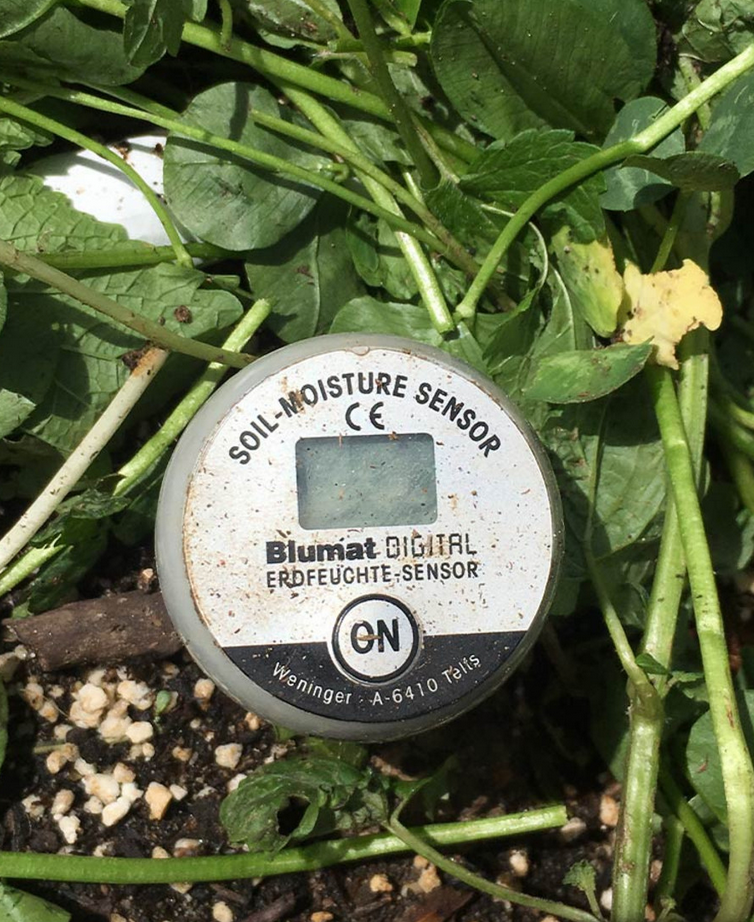The Ultimate Overview to Wetness Meters: A Comprehensive Summary and Just How They Can Save You Money
In the world of building upkeep, building and construction, and numerous markets, the relevance of precisely gauging wetness levels can not be overemphasized. Moisture meters function as indispensable devices in discovering and keeping track of moisture web content in materials, assisting in stopping pricey damages and ensuring the high quality of items. Understanding the subtleties of different sorts of moisture meters, their applications, and the prospective cost-saving benefits they use can be a game-changer for services and professionals alike. Finding just how these devices can not only enhance procedures however additionally add to monetary cost savings is a journey worth beginning on.
Sorts Of Wetness Meters
Numerous sorts of dampness meters are available for different applications in various industries. One common kind is the pin-type wetness meter, which determines the electric resistance in between 2 pins put into a material. This type appropriates for timber, drywall, and various other building materials. Pinless moisture meters, on the other hand, usage electro-magnetic sensing unit plates to check a bigger location without triggering damage to the material's surface. Moisture Meter. These meters are excellent for promptly examining dampness degrees in big areas such as floorings and wall surfaces.

Infrared moisture meters determine the thermal residential or commercial properties of a product to determine its moisture web content non-invasively, making them useful for applications where pin or pinless meters might not be suitable. Understanding the various kinds of moisture meters readily available can assist sectors choose the most appropriate device for their specific dampness measurement needs.

Benefits of Utilizing Wetness Meters
Wetness meters provide important benefits in precisely monitoring and analyzing dampness degrees in diverse materials and settings. One of the primary benefits of utilizing moisture meters is the prevention of possible damages created by excess dampness.
Additionally, utilizing wetness meters can result in boosted energy performance. By identifying locations with high moisture degrees, such as leakages or poor insulation, modifications can be made to boost energy conservation and lower energy prices. In farming setups, dampness meters play a vital role in maximizing crop yields by enabling farmers to monitor soil wetness levels and make informed watering choices. On the whole, the advantages of using dampness meters extend throughout different industries, supplying affordable services and advertising better high quality control practices.
Exactly How to Choose the Right Dampness Meter
When choosing a dampness meter, it's necessary to ensure that the meter is suitable for the certain product you will certainly be testing. Different products have varying electrical residential or commercial properties that can impact moisture analyses, so selecting a meter created for your product is important for accurate results. By thoroughly examining these variables, you can pick a wetness meter that satisfies your requirements and provides precise moisture dimensions for your tasks.
Appropriate Methods for Dampness Meter Usage

Cost Cost Savings With Wetness Meter Applications
How can the strategic usage of moisture meters lead to considerable expense financial savings throughout various industries? In the farming sector, moisture meters help in identifying the optimum time for gathering plants, stopping excess reference or over-drying wetness that can influence the final item's quality.
In a similar way, in building, moisture meters help avoid expensive damages by finding moisture levels in building materials, such as timber or concrete, which can result in architectural problems if not resolved without delay. By identifying problem areas early, contractors can take restorative measures to stay clear of considerable repair services or substitutes, eventually saving money and time.
Moreover, in the food processing market, moisture meters are important for keeping track of product top quality and making certain conformity with security policies. By properly measuring wetness material in food, manufacturers can stop spoilage, keep freshness, and decrease waste, resulting in significant cost financial savings. Overall, the tactical application of moisture meters is an important financial investment that can cause considerable expense reductions and improved performance across different sectors.
Final Thought
In final thought, wetness meters are valuable tools for discovering and determining moisture degrees in different materials. By making use of the ideal moisture meter and following appropriate methods, users can successfully avoid costly damages caused by excess moisture. Investing in a quality wetness meter can result in substantial expense savings in the future by determining possible issues early on and making it possible for timely remediation. Ultimately, moisture meters are essential instruments for keeping the honesty and long life of materials and frameworks.
Dampness meters offer as indispensable tools in finding and keeping an eye on moisture web content in products, aiding in preventing costly damages and making sure the top quality of items. Infrared wetness meters gauge the thermal homes of a material to identify its moisture official statement web content non-invasively, making them useful for applications where pin or pinless meters may not be suitable.Dampness meters provide indispensable benefits in accurately examining and keeping track of wetness levels in diverse materials and atmospheres. In farming settings, dampness meters play a critical duty in enhancing plant returns by allowing farmers to monitor soil wetness degrees and make informed irrigation choices.In verdict, wetness meters are beneficial tools for spotting and determining dampness levels in numerous materials.